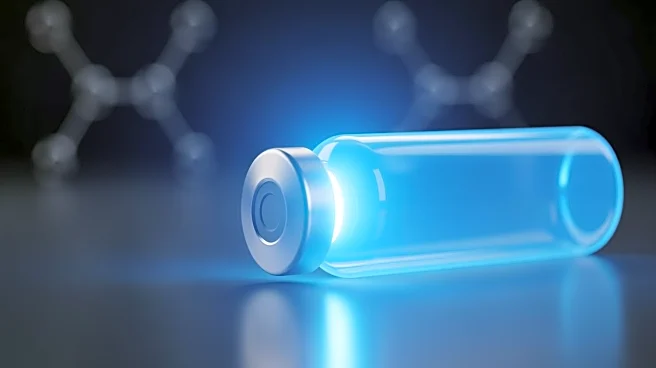What's Happening?
The U.S. antibody drug conjugates (ADC) market is expected to grow from $7.54 billion in 2025 to $11.70 billion by 2034, according to Vision Research Reports. ADCs combine monoclonal antibodies with cytotoxic drugs to target cancer cells while minimizing
damage to healthy cells. This targeted approach is particularly beneficial for treating refractory or metastatic cancers. The market growth is driven by the increasing adoption of ADCs for various cancer types, including breast cancer and multiple myeloma. Key players in the market include AstraZeneca, Daiichi Sankyo, and Pfizer.
Why It's Important?
The growth of the ADC market highlights the increasing demand for targeted cancer therapies that offer improved efficacy and reduced side effects compared to traditional chemotherapy. As the prevalence of cancer continues to rise, ADCs provide a promising treatment option that can enhance patient outcomes and potentially reduce healthcare costs. The expansion of the ADC market also reflects advancements in biotechnology and the development of new drugs that can address unmet medical needs in oncology.
What's Next?
The ADC market is expected to continue its growth trajectory, driven by ongoing research and development efforts to expand the range of cancers that can be treated with ADCs. Pharmaceutical companies are likely to invest in developing new ADCs and improving existing ones to enhance their effectiveness and safety profiles. Additionally, collaborations between biotech firms and research institutions may accelerate the development of innovative ADCs, further boosting market growth.

















